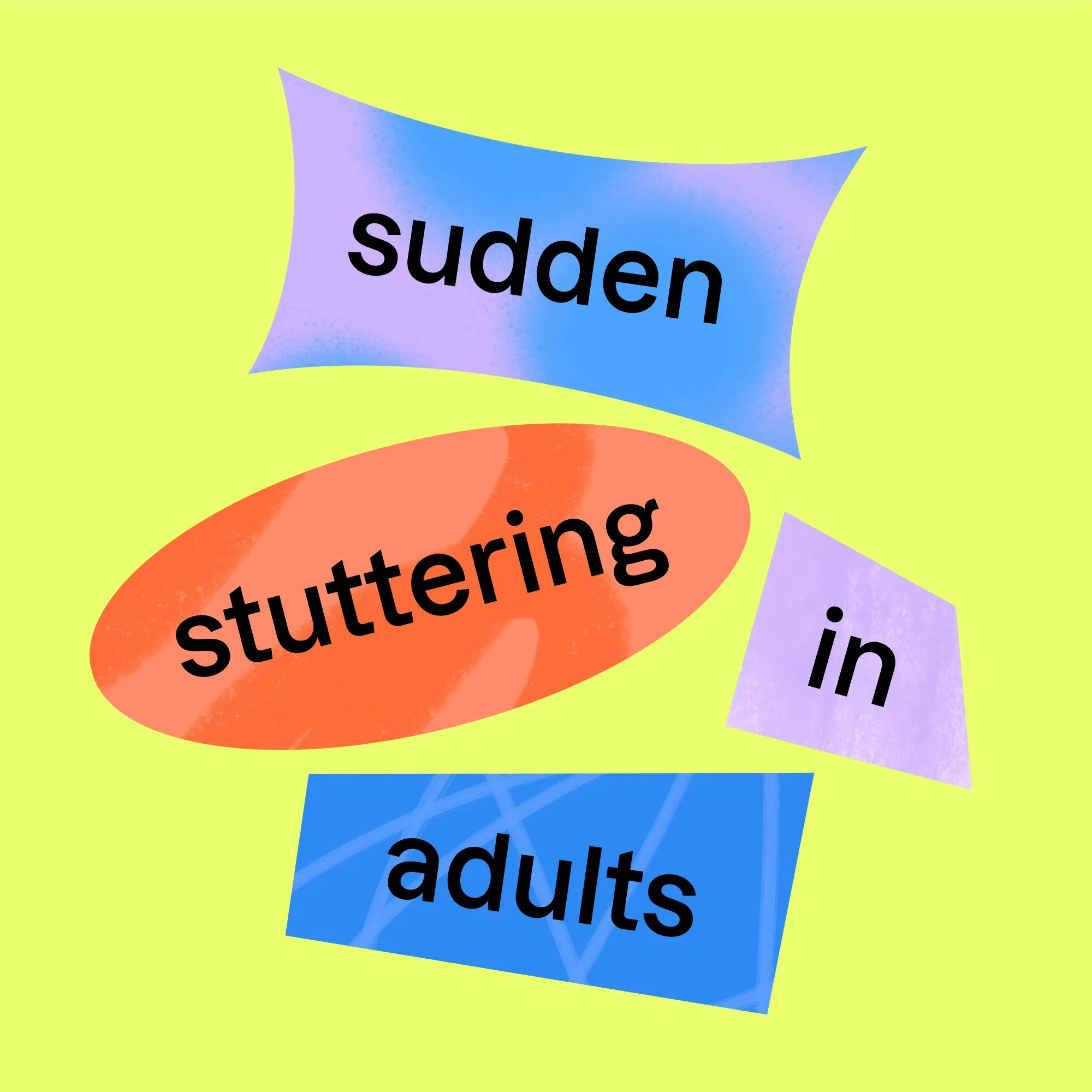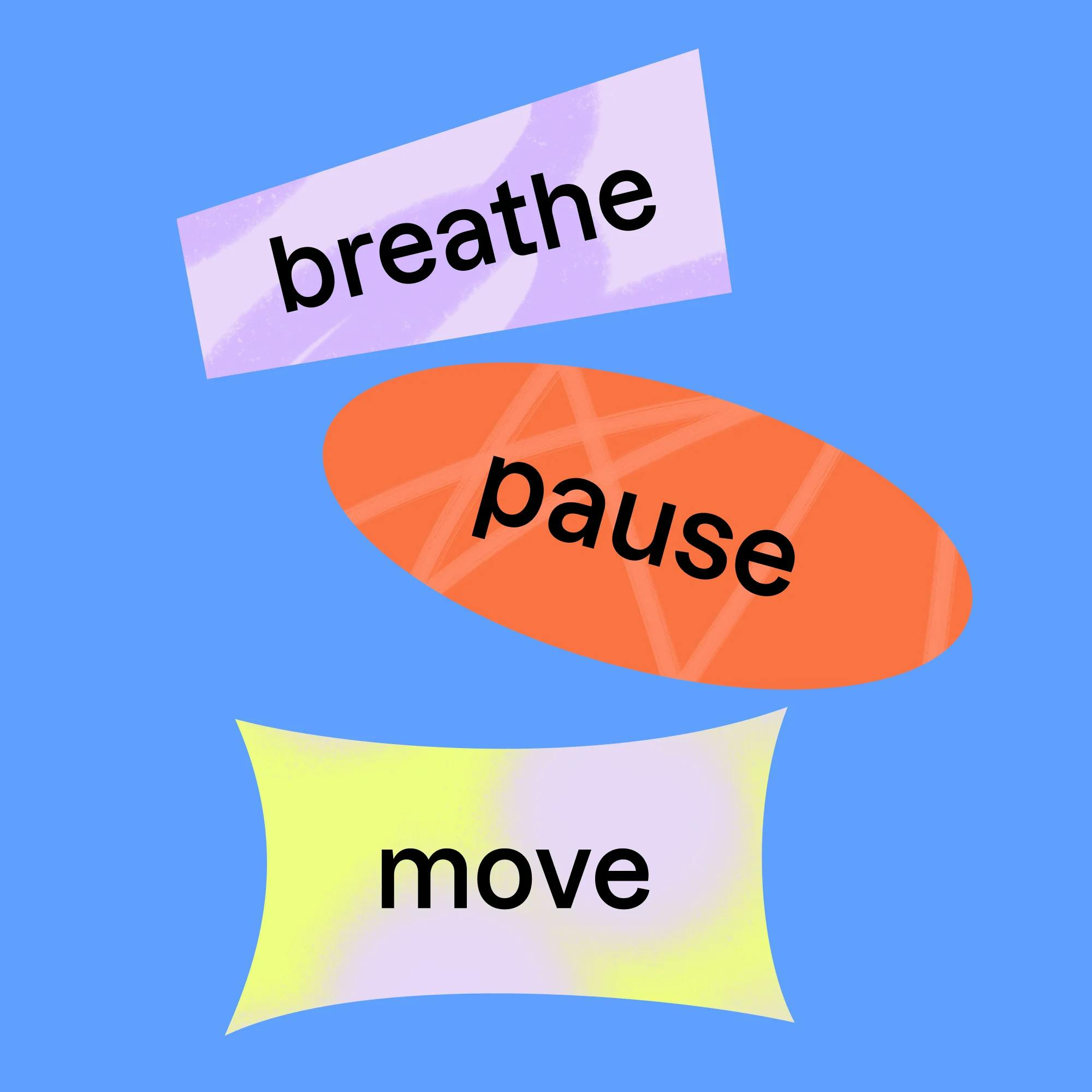There are still many misconceptions out there about stuttering, also known as stammering. Some people may consider stuttering a mental disorder. Others wonder if it qualifies as a learning disability.
In this article, we explain what stuttering is and what causes it. We also walk through the types of school and workplace supports that are available for children and adults who stutter.
Free speech skills screener
Questions are tailored by age and cover all areas of communication. Take our 5-minute online screener and get instant feedback.
 Start the screener
Start the screenerWhat is stuttering?
We all misspeak from time to time or repeat sounds when we talk. Occasional stutters or stammers (also called disfluencies) are not considered clinical stuttering.
Clinical stuttering is when a person consistently produces disfluencies, or interrupted speech. A person who stutters has trouble saying sounds and words smoothly, or fluently.
There are three types of stuttering:
Repetitions: Repetitions are a type of disfluency where a word, syllable, or sound is repeated more than three times. Example: “I w-w-w-w-w-w-want to go skating.”
Prolongations: Prolongations are a type of disfluency where a sound is prolonged or held for an abnormally long period of time. Example: “I fffffffffffffffffound a penny.”
Blocks: When a block occurs, no sound is made in the mouth or throat. The parts of the mouth are stuck in one position and unable to continue to move for a period of time. Example: “I’m excited for the w ……………….. eekend.”
What causes stuttering?
What does it mean when you have a stutter? Studies have shown that there is likely some kind of genetic factor to stuttering. A person may be more likely to stutter if they have family members who stutter.
Researchers have also identified differences in the way speech muscles move in people who stutter. Those who stutter may have differences in speech-motor control, such as coordination and timing. Abnormalities in these areas can result in stuttering.
Stuttering could also be connected to language processing and word retrieval, or finding the words we want to say. People who don't stutter have shown better abilities in word retrieval and in receptive language, which means how we understand the words spoken to us. Those who stutter have shown more problems tied to word finding. If a person has a hard time finding the words they want to use, it could increase their likelihood of stuttering, as their speech stalls and they feel pressured to talk.


Is stuttering a disorder?
There are a few misconceptions about how to classify stuttering. Stuttering is not a psychological disorder or mental disorder, and it is not a learning disability. Stuttering is a difference in verbal communication. It is a form of verbal diversity. A stutter is a part of a person, just like the color of their hair.
When a person who stutters receives a diagnosis, the clinical term is childhood-onset fluency disorder. A speech therapist can perform a formal evaluation and determine whether enough disfluencies are present in a person’s speech to be considered a fluency disorder.
Some people who stutter may have negative feelings about their speech, or have negative experiences when communicating with others. As wrong as it is, there is still a certain stigma around stuttering. This may cause anxiety in some people who stutter. They may avoid communicating in certain situations, whether at school, work, or socially. Speech therapy can help people who stutter build confidence, advocate for themselves, and learn to speak more freely.
Support for people who stutter
Speech therapy can build your confidence and help you speak more freely. Find the right speech therapist for the support you need.
 Get started
Get startedSupport and accommodations for people who stutter
Stuttering can qualify as a disability. This means the person who stutters can receive accommodations and support in school or at work. In order for a person to receive these services, they will likely need a fluency disorder diagnosis.
Services for children who stutter
Let’s talk about support for children who stutter. School-age kids can receive speech therapy for stuttering if they qualify through testing. Speech therapy for stuttering would be included in the child’s IEP (Individualized Education Program).
The IEP is a legal document in the United States that is developed for children with special needs by a team of teachers, specialists, therapists, and parents or guardians. The document establishes specific goals for the child and how they will be met in public school. An IEP might include special education services and accommodations, or changes to the child’s learning environment.
You can learn more about IEPs for stuttering from the The Stuttering Association for the Young.


Accommodations for adults who stutter
Adults who stutter may be protected in the workplace under the Americans with Disabilities Act (ADA). The ADA applies to private employers with 15 or more employees, state and local governments, employment agencies, and labor unions. The ADA prohibits discrimination against qualified individuals on the basis of disability in job application procedures, hiring, firing, advancement, compensation, and other aspects of employment.
To be covered by the ADA, you must have a physical or mental impairment that limits at least one major activity of daily life. As the American Institute for Stuttering explains, “If you are a stutterer, who is substantially limited in the major life activity of speaking, you may be considered disabled under the ADA.” The American Speech-Language-Hearing Association also states that “the definitions contained in the ADA strongly suggest that stuttering is a disability.”
The person who stutters is responsible for speaking with their employer and asking for any needed accommodations. For example, someone may prefer to communicate over chat or email, as opposed to speaking on the phone or video conferences. With accommodations, the person should be able to perform their job effectively.


How does speech therapy help with stuttering?
Some people who stutter choose to have speech therapy. Therapy can help both children and adults manage their stutter and speak with greater ease and confidence. This can be done using a variety of speech techniques and strategies, as well as through counseling to build a sense of empowerment and confidence.
Your speech therapist will create a personalized treatment plan for you or your child. Be open with your speech therapist about what you’d like to target in therapy. They can show you or your child new techniques to manage stuttering, and you can let them know what feels comfortable and natural.


The goal of speech therapy is not to “fix” or “get rid of” a stutter. There is no cure for stuttering, although in some cases early treatment can prevent childhood stuttering from continuing into adulthood.
Depending on the person’s needs and goals, there are a variety of speech therapy goals for stuttering. They can include:
Learning techniques to manage a stutter and achieve greater ease of speech
Reducing avoidance behaviors, in which the person avoids situations for fear of stuttering
Becoming a strong and confident communicator, however that looks and sounds for the individual person
Learning to advocate for themselves and be open about their stutter
For parents and caregivers, learning about stuttering and how best to support their child
Looking for a speech therapist who's experienced in working with people who stutter? Click here to get matched with a licensed therapist at Expressable. We’ll be happy to answer your questions and talk about next steps.


Frequently asked questions
Is stuttering a disorder?
There are a few misconceptions about how to classify stuttering. Stuttering is not a psychological disorder or mental disorder, and it is not a learning disability. Stuttering is a difference in verbal communication.
Is stuttering a disability?
Stuttering can qualify as a disability. This means the person who stutters can receive accommodations and support in school or at work. In order to receive services, they will likely need a fluency disorder diagnosis.
Why do adults suddenly start stuttering?
When stuttering starts later in life, it’s called adult onset stuttering or acquired stuttering. There are several possible causes for stuttering in adults, including stroke, traumatic brain injury, emotional trauma, and certain medications. You can learn more about sudden stuttering in adults in this article.
Can stuttering be cured?
There is no cure for stuttering, although in some cases early treatment can prevent childhood stuttering from continuing into adulthood. The goal of speech therapy is not to “fix” or “get rid of” a stutter. Speech therapy can help people learn techniques to manage a stutter, achieve greater ease of speech, reduce avoidance behaviors, and advocate for themselves as a person who stutters.
How Expressable Can Help
Concerned your child isn't reaching age-expected milestones? Looking for communication support from a professional? Expressable is a national online speech therapy practice serving children and adults. We treat all major areas of communication and feeding, offer flexible hours including evenings and weekends, and accept most major health insurance plans. We’re proud to have earned more than 3,000 5-star reviews from our clients (4.9/5 average).
Our therapy model is centered on parent and caregiver involvement. Research proves that empowering caregivers to participate in their loved one’s therapy leads to better outcomes. That’s why we combine live, 1-on-1 speech therapy with personalized education and home practice activities for faster progress.
Communication is more than words. It’s how we share how we feel and show who we are. We’re here to help you or your child do just that.
 Abby Barnes, M.S., CCC-SLP
Abby Barnes, M.S., CCC-SLP












